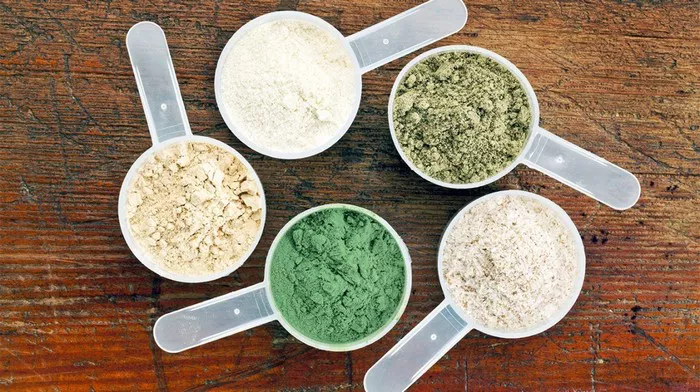In the realm of fitness and nutrition, the timing of protein consumption is a topic of much debate and speculation. Should you consume protein before a workout to fuel your muscles, or is it better to wait until after your workout to aid in recovery and muscle growth? In this article, we’ll delve into the nuances of pre- and post-workout protein intake, exploring the scientific evidence, practical considerations, and potential benefits of each approach. By understanding the role of protein timing in exercise performance and muscle development, you can make informed decisions to optimize your nutrition and fitness goals.
The Role of Protein in Exercise Performance
Protein is an essential macronutrient that plays a crucial role in muscle repair, growth, and maintenance. During exercise, particularly resistance training or endurance exercise, muscles undergo stress and damage, creating micro-tears that need to be repaired and rebuilt. Protein provides the necessary building blocks, in the form of amino acids, to support this process of muscle protein synthesis (MPS) and facilitate muscle recovery and adaptation.
1. Muscle Protein Synthesis: MPS is the process by which muscle fibers repair and grow in response to exercise-induced damage. Consuming protein-rich foods or supplements before or after exercise can stimulate MPS, promoting muscle repair and growth over time.
2. Exercise Performance: Adequate protein intake is essential for optimizing exercise performance, supporting energy production, and preserving lean muscle mass. Consuming protein before or after a workout can help replenish amino acid stores, reduce muscle breakdown, and enhance recovery, ultimately improving overall performance and fitness outcomes.
3. Nutrient Timing: The timing of protein intake, relative to exercise, may influence the rate of muscle protein synthesis, nutrient uptake, and recovery. By strategically timing protein consumption around workouts, individuals can potentially maximize the benefits of exercise and support their fitness goals.
The Case for Pre-Workout Protein
1. Consuming protein before a workout is a common practice among athletes and fitness enthusiasts, with proponents arguing that it provides the necessary fuel and amino acids to support energy production, enhance performance, and prevent muscle breakdown during exercise. Some potential benefits of pre-workout protein intake include:
2. Muscle Fuel: Consuming protein before a workout can provide a readily available source of amino acids for energy production and muscle function during exercise. This can help delay fatigue, improve endurance, and optimize performance, particularly during high-intensity or prolonged workouts.
3. Muscle Preservation: Pre-workout protein intake may help prevent muscle breakdown (catabolism) by supplying the muscles with a steady stream of amino acids to support protein synthesis and repair. This can be especially beneficial for individuals engaging in fasted or prolonged exercise sessions, where muscle breakdown may be more pronounced.
4. Appetite Control: Consuming protein before a workout may help regulate appetite and promote satiety, potentially reducing overall calorie intake and supporting weight management goals. Protein-rich foods or supplements can help stabilize blood sugar levels and curb hunger cravings, leading to better food choices and improved body composition over time.
The Case for Post-Workout Protein
On the other hand, consuming protein after a workout is widely regarded as an essential component of the recovery process, helping to replenish glycogen stores, repair damaged muscle tissue, and promote muscle growth and adaptation. Some potential benefits of post-workout protein intake include:
1. Muscle Repair and Growth: After exercise, muscles are primed to absorb nutrients and initiate the process of muscle repair and growth. Consuming protein post-workout provides the necessary amino acids to support this process, accelerating recovery and facilitating muscle adaptation to training stimuli.
2. Glycogen Replenishment: Intense exercise depletes glycogen stores in the muscles and liver, which serve as a primary source of energy during prolonged or high-intensity workouts. Consuming protein along with carbohydrates post-workout can help replenish glycogen stores more rapidly, restoring energy levels and promoting recovery.
3. Optimal Timing: The window of opportunity for nutrient uptake and muscle repair is believed to be heightened in the immediate post-exercise period, known as the “anabolic window.” Consuming protein within this window may enhance muscle protein synthesis rates and promote greater gains in muscle mass and strength compared to delayed protein consumption.
Practical Considerations and Recommendations
While both pre- and post-workout protein intake offer potential benefits for exercise performance and recovery, the optimal timing and quantity of protein consumption may vary depending on individual goals, preferences, and dietary habits. Here are some practical considerations and recommendations to help guide your protein intake:
1. Personal Preference: Experiment with different timing strategies to determine what works best for you. Some individuals may prefer to consume protein before a workout to fuel their performance, while others may find it more convenient or effective to consume protein after a workout to aid in recovery.
2. Nutrient Composition: Consider the nutrient composition of your pre- and post-workout meals or snacks. Aim for a balance of protein, carbohydrates, and healthy fats to support energy production, muscle repair, and overall nutrition.
3. Timing and Frequency: Pay attention to the timing and frequency of your protein intake throughout the day. While pre- and post-workout protein consumption is important, spreading protein intake evenly across meals and snacks can help maintain a steady supply of amino acids for muscle repair and growth throughout the day.
4. Individual Needs: Tailor your protein intake to meet your individual needs, taking into account factors such as body weight, activity level, training intensity, and fitness goals. Aim for a protein intake of approximately 0.8 to 1.2 grams per kilogram of body weight per day, distributed across meals and snacks.
5. Quality Sources: Choose high-quality sources of protein, such as lean meats, poultry, fish, eggs, dairy products, legumes, nuts, and seeds. Protein supplements, such as whey protein, casein protein, or plant-based protein powders, can also be convenient options for meeting protein needs before or after a workout.
Conclusion
The timing of protein intake, whether before or after a workout, is a topic of ongoing debate and research in the field of sports nutrition and exercise science. While both pre- and post-workout protein consumption offer potential benefits for exercise performance, recovery, and muscle development, the optimal timing and quantity of protein intake may vary depending on individual goals, preferences, and dietary habits. By understanding the role of protein in exercise performance, muscle repair, and adaptation, individuals can make informed decisions to optimize their nutrition and fitness goals, ultimately supporting their journey towards improved health and well-being.
[inline_related_posts title=”You Might Be Interested In” title_align=”left” style=”list” number=”6″ align=”none” ids=”6544,6541,6486″ by=”categories” orderby=”rand” order=”DESC” hide_thumb=”no” thumb_right=”no” views=”no” date=”yes” grid_columns=”2″ post_type=”” tax=””]
































